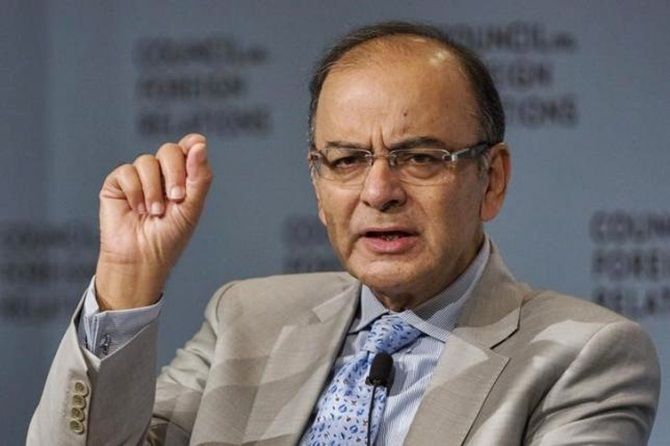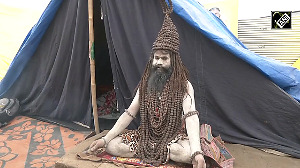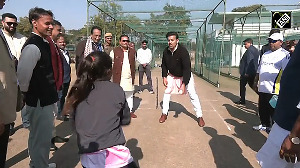 Indian economy will grow at a clip of 7.5 per cent this fiscal, up from 7.1 per cent in the previous year, and remains resilient with low inflation, fiscal prudence and low deficit, Union Finance Minister Arun Jaitley has said.
Indian economy will grow at a clip of 7.5 per cent this fiscal, up from 7.1 per cent in the previous year, and remains resilient with low inflation, fiscal prudence and low deficit, Union Finance Minister Arun Jaitley has said.
Participating in G-20 finance ministers’ and central bank governors’ meeting, he said emerging economies have become increasingly important in driving global growth, accounting for more than 75 per cent of global expansion.
Among emerging economies, ‘India has been a major driver of global economic growth with an expected growth of 7.5 per cent for 2017-18 against 7.1 per cent in 2016-17’, an official statement quoted him as saying.
India’s growth, he said, remains resilient with low inflation, fiscal prudence and low current account deficit, talking about robust structural reform measures.
Addressing the meeting on Friday, Jaitley said India is on course to introduce the goods and services tax from July this year.
GST, he said, will eliminate the multiplicity of taxes and make India a single common market.
As per International Monetary Fund projections, India’s medium-term growth is poised to go above 8 per cent, Jaitley said.
About demonetisation, the finance minister said the move will push the Indian economy to a less-cash trajectory, increase tax compliance and reduce threats from counterfeit currency, which acts as a source of terror funding.
"These and many more multi-faceted reforms are expected to ensure India can withstand volatility of the global economy as well as ensure an upward growth trajectory," he asserted.
Jaitley is on an official tour to the United States to attend the spring meetings of the IMF and the World Bank and other associated interactions.
He is accompanied by Reserve Bank of India Governor Urjit Patel, Economic Affairs Secretary Shaktikanta Das and Chief Economic Adviser Arvind Subramanian.
Separately participating in the Development Committee Restricted Lunch Session on the theme of ‘Inequality’, Jaitley said rich nations still have a big responsibility and obligation to use their resources to support multilateralism.
Also, they need to make institutions like the World Bank strong to be able to fund policies and programmes for growth and development of poorer nations.
India, according to Jaitley, has significantly stepped up investment in electricity, roads, financial access and housing for the poor and the government has taken a number of steps to ensure inclusive growth.
It is using technological innovations in a big way for better targeting of government services, he said.
India-US ties stronger, mature: Jaitley
India-US ties have ‘matured’ andbecome ‘stronger’ over the last few decades, defying government changes in the two countries, Jaitley said on Saturday.
Jaitley, speaking at a reception hosted by India's Ambassador to the US Navtej Sarna, said the Indian government was looking forward to working with the Trump administration to strengthen bilateral ties.
Stressing that the India-US relationship has bipartisan support in the two countries, he said, “In one sense it is a bipartisan relationship. I am sure it would be a great privilege for us to continue with the new administration to strengthen the various dimensions of this relationship.”
Jaitley on Friday met US Commerce Secretary Wilbur Ross,in what was the first cabinet-level interaction between the two countries under the Trump administration.
"The India-US relationship over the last few decades has significantly improved. It is far stronger, far matured. It defied the changes in the government whether in the US or in India," he said.
"I met the (US) Commerce Secretary yesterday (Friday). I will meet the (US) Treasury Secretary tomorrow (Sunday). This would be the first contact at that level between the new Trump administration and government of India," he said.
During the meeting with US commerce secretary on Friday, Jaitley strongly raised India’s concerns over the Trump administration's move to tighten the H-1B visa regime,highlighting the key role played by Indian professionals in boosting the American economy.
President Donald Trump this week signed an executive order for tightening the rules of the H-1B visa programme to stop its ‘abuse’ and ensure that the visas are given to the‘most-skilled or highest paid’ petitioners, a decision that would impact India’s $150 billion (Rs 9.75 lakh crore) Information Technology industry.
Jaitley outlined the significant contributions the skilled Indian professionals have made to the US economy and expressed the hope that the US administration will take this aspect into consideration while taking any decision.
Jaitley is also scheduled to attend meetings of other multilateral forums including that of the G-20 finance ministers.
"There is a little more optimism this year than I have seen in the last three years (at the IMF/World Bank meetings).This seems to be the good news, as far as these meetings are concerned," he said.
Speaking about India's growth story, he said, "In the last three years even in the midst of a slowdown across the world, India has been able to grow in the range of seven to eight per cent. That is the rate of growth that we have fairly maintained. Our all other economic parameters seems to be fairly well under control."
"The significant part of our economy today is that there is perhaps for the first time, a huge amount of popular support as far as economic reforms are concerned," he said.
"India has become one of the most open economies of the world. Most of our sectors are open for international investment. And we have been attracting one of the largest investments that any country has been attracting in the world.
"And it is a combination of this investment which is coming into India, coupled with higher public spending, even as the private sector spending was a little low, that has kept the Indian growth process going," he said.
He said the environment for doing business has been considerably eased.
"India has learned from its past experiences. And this itself has helped in cleaning up the entire process. We have now undertaken a very ambitious reform for cleaning up the system of political funding in India, something which had been eluding Indian democracy for quite some time," he said.






 © 2025 Rediff.com -
© 2025 Rediff.com -